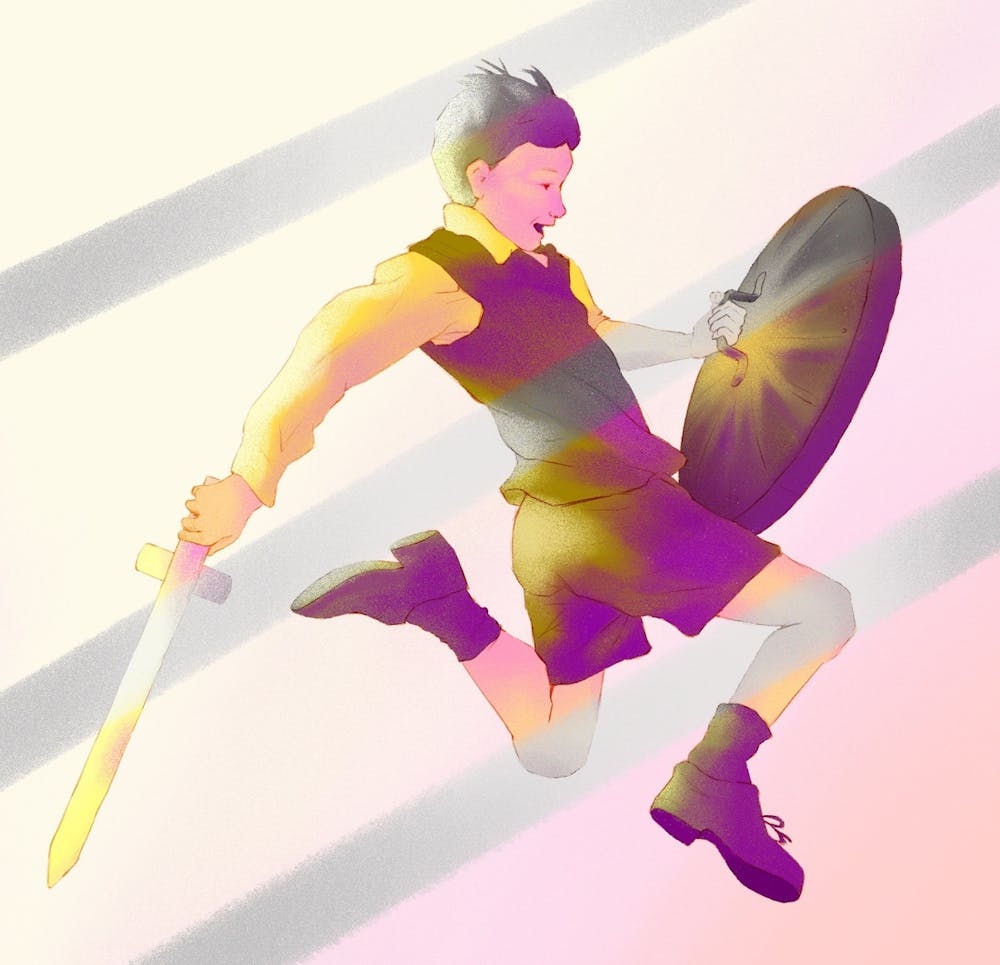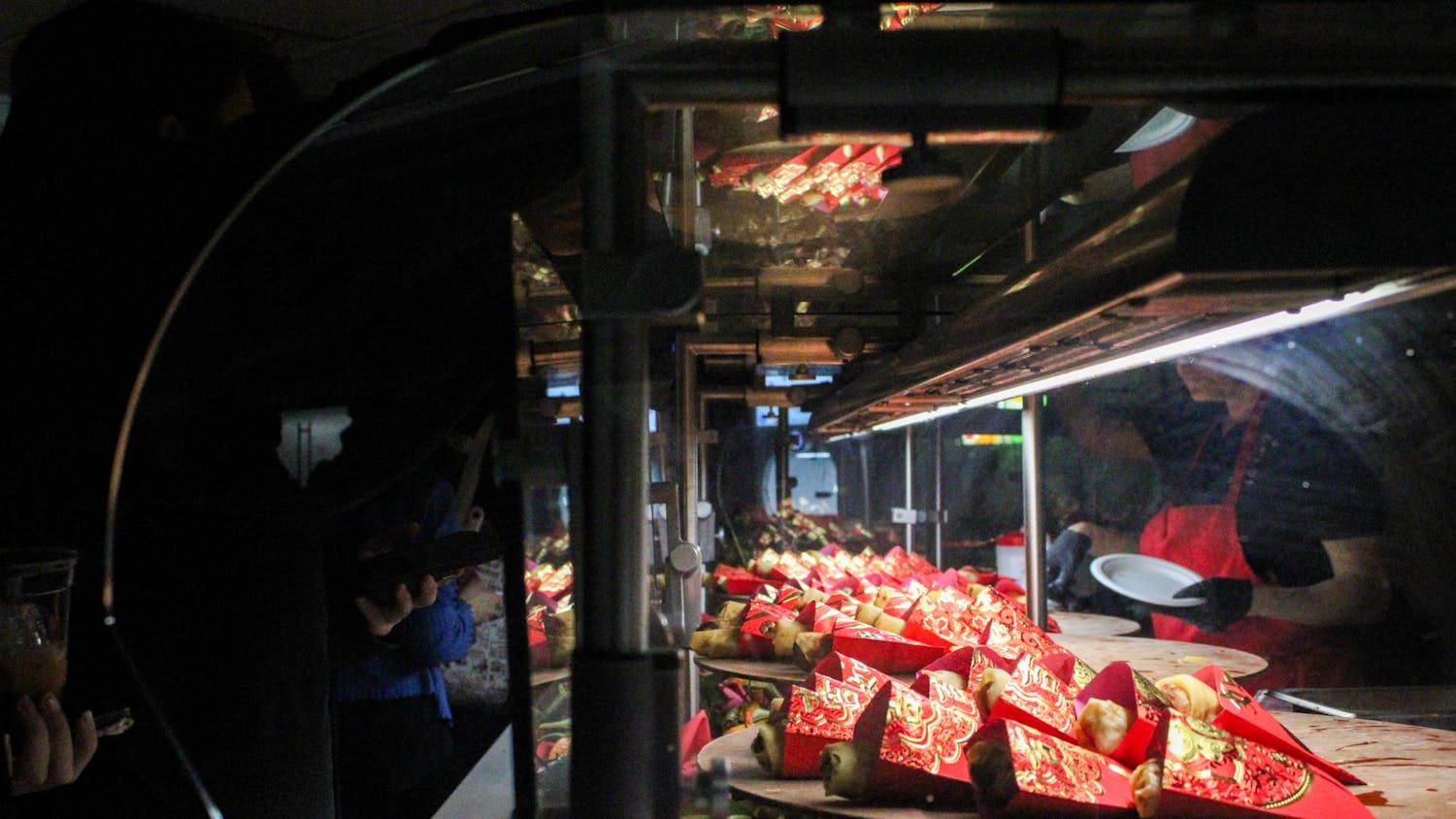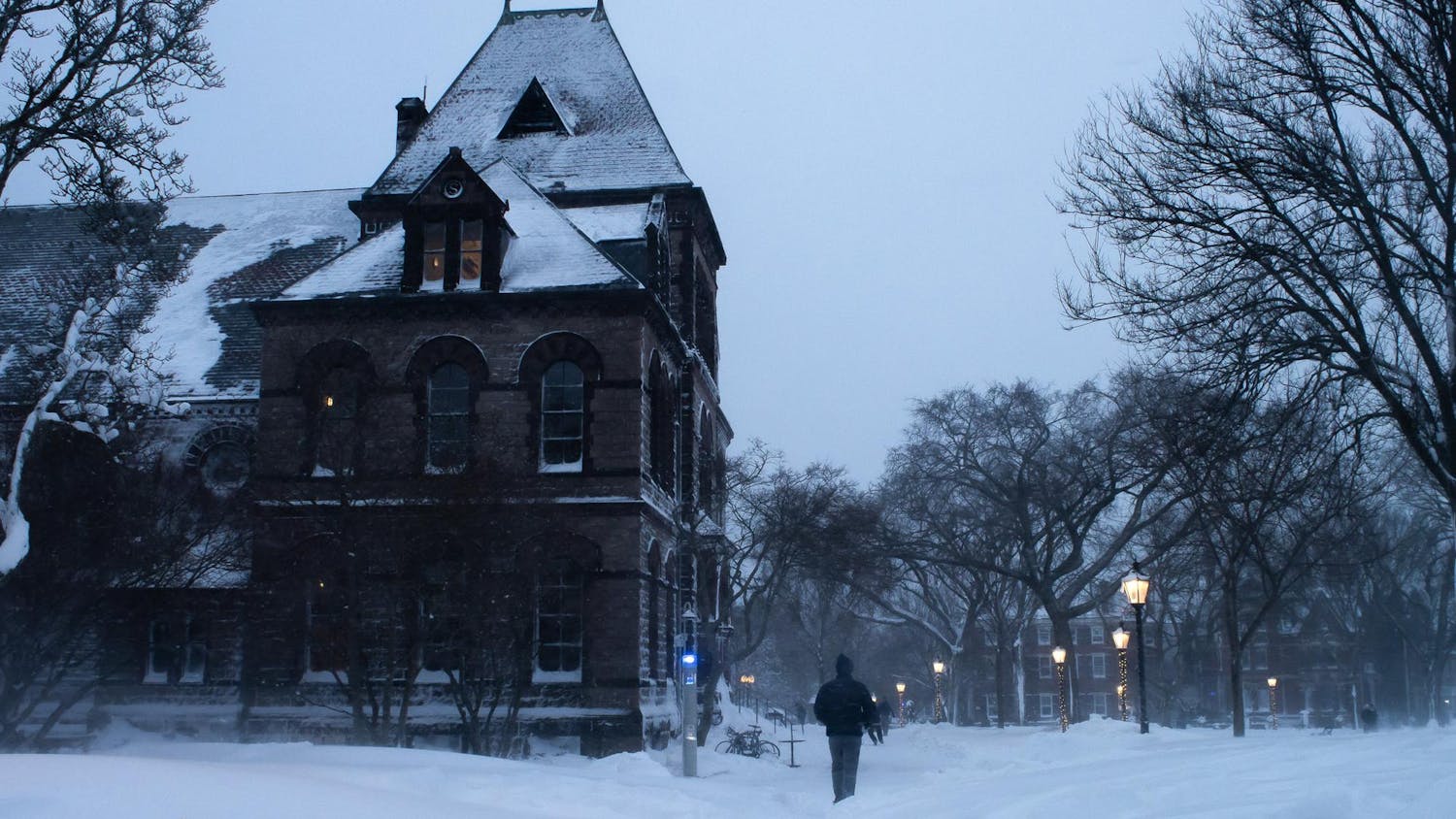It’s surprising to witness director Kenneth Branagh — famous for films like “Hamlet” (1996) and “Henry V” (1989) — create a deeply personal film full of intimate childhood memories. At its core, “Belfast” beats with a slow-thumping pathos that could fill any room with “aws.” The film is compelling without being pedantic, and its synthesis of supple narrative with sharp black-and-white cinematography saturates it with insight, situating “Belfast” among the year’s best films.
A violent conflict between the Catholic and Protestant sects of Northern Ireland — a low level, ethonationalist war from 1968 to 1998 — serves as the backdrop to the film. Through overheard whispers and peering eyes, the viewer experiences it all from the perspective of nine-year-old Buddy (Jude Hill). Throughout the film, each detail and performance beautifully adds to Branagh’s wistful letter on Belfast to those who shaped his character.
The film’s cast brings breakout stars and Hollywood legends together: Its actors include Judi Dench, Ciarán Hinds, Jamie Dornan, Caitriona Balfe, Jude Hill, Lara McDonnell and Colin Morgan.
As the camera climbs into the first scene, color shots of present-day Belfast switch to August 1969 in black-and-white. We’re introduced to Buddy’s world, finding him playing in the streets of an almost satirically close-knit community.
Then, something shifts. As an angry mob descends on Buddy’s street, the viewer feels helpless, and the cheerful beginning dissolves into chaos. Branagh’s technique conveys Buddy’s experience through frenetic shots and warped audio.
Nonetheless, the film never forgets laughter, drinking or the always amusing Irish banter — it addresses the tension between retaining normalcy amid the tumult of the time. Some of the character’s family moments include watching movies at home or in the theater — “Chitty Chitty Bang Bang” and “One Million Years B.C.” play in vibrant technicolor.
Arguably, Granny (Judi Dench) and Pop (Ciarán Hinds) offer the wisest reflections on familial bonds; when asked about Dench and Hinds, Branagh suggests the two have the “touch of a poet,” where nothing is “flimflam,” according to an ABC News article. The actors flesh out their roles with both maturity and experience, making a grandparent’s passing advice all the more convincing and rooting the film in Branagh’s own memories.
Propelled by honest performances, the cuts Branagh makes between games of table soccer and the occasional afternoon Molotov cocktail create an undeniably authentic portrait of the time.
As unrest builds across Belfast, the community constructs a barricade to deter violent aggressors, and Buddy’s parents — known as Ma (Caitriona Balfe) and Pa (Jamie Dornan) — desperately try to hide any suggestion of danger broadcasted on the television or radio from their son.
Interestingly, Branagh tightly controls how the audience sees, substituting fear with a childlike sense of discovery from Buddy’s perspective. While one might think such a winsome character might threaten to weaken the film’s complexity, Branagh strikes a fragile balance between the experiences of a child and the harsher realities that consume Ma and Pa with worry.
In another display of Branagh’s filmmaking, an aggressively zoomed shot films a Protestant pastor advising against Catholic ideology. The closeness of the camera brings each word directly to the viewer, connecting them to Buddy’s struggle to recall the pastor’s advice. The pastor’s words are striking and follow Buddy later in the film as his childlike wonder is shaken with the adult stressor of uncertainty amid decision making.
As we progress through the film, ambiguity collapses into chaos. Buddy witnesses a fight without the context of why the men are at odds, and the viewer experiences Buddy’s surprise first-hand — exaggerated by Branagh’s slow-motion knockout editing. Snippets of violence function as parts of the whole: “Belfast” rejects the easy ending of total moral resolution because, in reality, polarizing times are maddeningly ambiguous.
Sudden violence reinforces the liminal frontier of Buddy’s world, spanning his street, school and occasionally the nearby candy shop. Still, the possibility of violence does not prevent Buddy from stealing one of the shop’s Turkish delights.
Even Buddy’s crush on a girl at school (Olive Tennant) feels more important than the ensuing conflict — pointing to the ways we find meaning in turmoil. And, without caring about her religion — Catholicism — the film critiques petty, sectarian conflicts.
“Belfast” wastes nothing, and nothing feels overkill. Citing “glossed-over” or “rose-tinted” recollections as a weakness is beside the point. As these scenes show the viewer Belfast’s importance to Buddy, viewers come to see why the thought of leaving is devastating. Had the film prioritized the violence sweeping Belfast in place of Buddy’s day-to-day life, any brochure promoting a new life in Australia, Vancouver or other commonwealth nations would feel rational — instead, they feel world crushing.
Toward the end, Buddy asks Pa whether or not he has a future with his crush, to which he responds, “that girl could be a vegetarian antichrist … but if she’s kind, and she’s fair … she and people are welcome in our house any day of the week.” In true “Belfast” fashion, Buddy shatters expectations by asking, “Does this mean we have to start going to confession?”
Moments like this put “Belfast” on the list for six Academy Awards. “Belfast” is a standout film because the range of emotional experiences creates openness and warmth — at first, we simply see Buddy, but in the end, we feel
alongside him.





